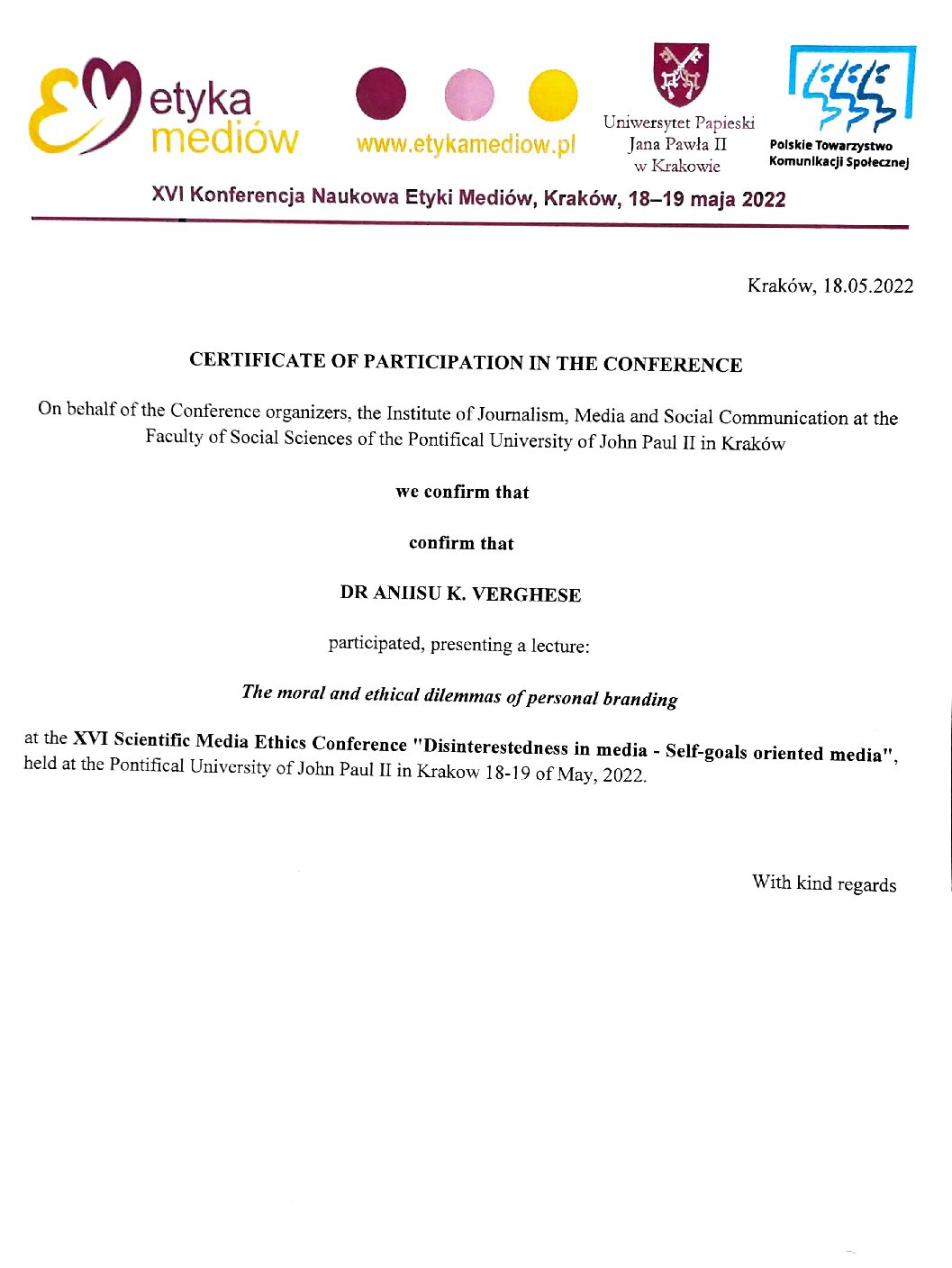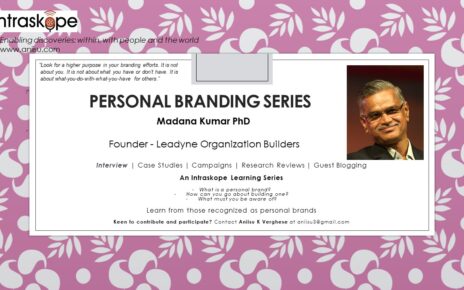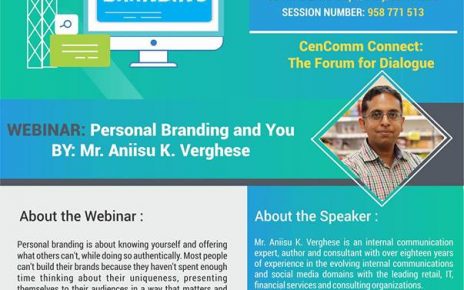Globally, trust in media is abysmally low and as citizens become stronger as activists, there is a need to reflect and revisit how revitalizing values and ethics can reinforce human progress and community development. This is in relation to people as media and in turn as personal brands. Media disinterestedness applies to people quite like how it works for brands. When brands are keeping customers in mind, stay deliberate about actions and put people over profits, they are successful overall.
What’s the connection to internal communications? My proposition is that organizations are an amalgamation of personal brands. Unless we fully appreciate what and how to tap into this authentic and reliable audience – your staff, companies are missing opportunities to make an impact.
The role of media in our lives can’t be underestimated with the explosion of information, involvement of citizens, the speed at which news travels and its ability to generate dialogue and change.
Consider these cases where ethics, morals and values conflict with how media in the hands of people are used or misused.
- Public life is disrupted and people try to get their hands on ice-creams linked to a collective of Polish YouTubers – is this kind of initiative ethical and values-led?
- Supermarkets transform as bus stations and book clubs to evade a ban and make profit. How will such brands be perceived among consumers?
- Influencers try to cash in on a women’s strike related to abortion by blending in brand messages creating backlash among citizens – does profit prevail over values?
- A company shuts down paid employee advocacy program because it came across as inauthentic. Where do you draw the line between personal and professional ethics?
- Celebrity accused of ‘black fishing’ (for social gain and fame) is made to reflect on her actions. Does alignment of who we are and what we project ourselves as matter?
Context
Due to COVID-19, the growth in online medium and the resulting pressures on media houses and publications to survive, it has been a turbulent time for managing ethical practices and editorial standards that journalism is known for. The 2022 Edelman Trust Barometer indicates that about 1 in 2 consider government and media as ‘divisive forces in society’, a concerning perception to have. Adding to that the global growth of populist sentiments is drawing attention to media freedom and journalists who voice out issues. Hyperpolarization is becoming the norm and media is in the middle of the complex challenges it brings. In a survey, just 17% of Poles strongly believe that mass media is pluralistic – where differing views are respected and offered.
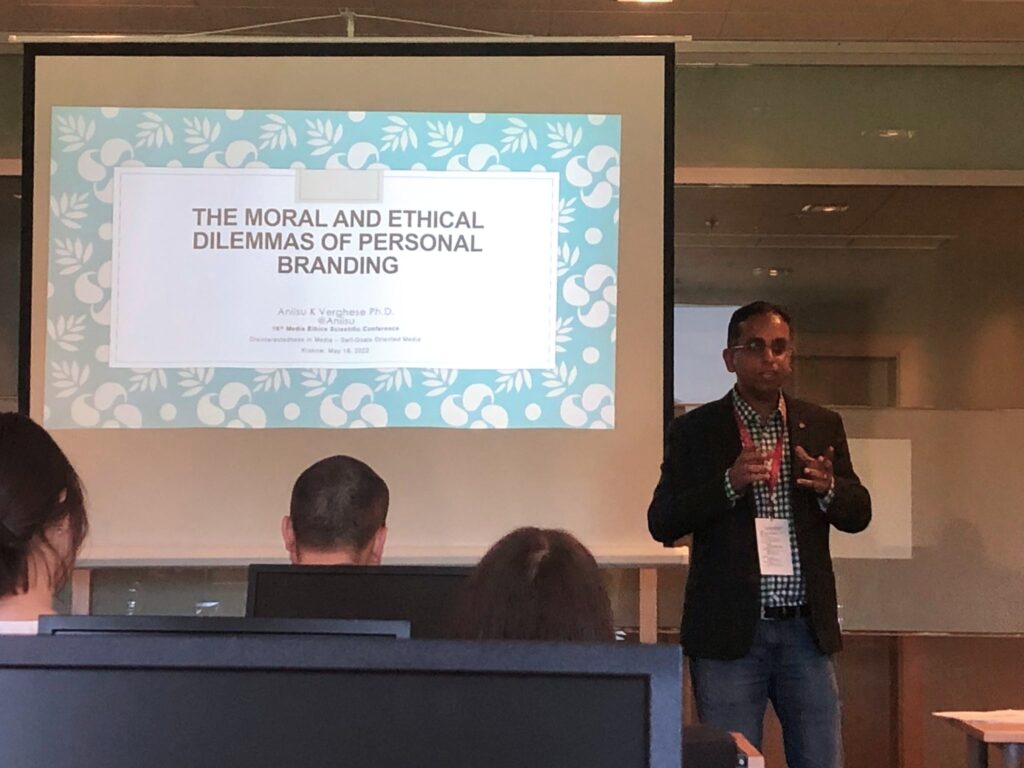
In the world of work, we are seeing significant changes as people demand more autonomy, work becomes non-standard and job precariousness is causing concern, especially in Europe. For example, staff with full-time permanent contracts is decreasing (59 % of the share of employment pie), while non-standard work grows, especially in nations such as Bulgaria, Estonia, Greece, Latvia, Lithuania, Spain and Poland. Gig working has increased and independent workers will continue to grow, which is indicative of the latent need for standing out from the crowd, fueling the need for personal branding.
Personal branding, also called self-marketing or human branding is a form of packaging and presenting expertise in a way that is viewed as valuable to audiences. Everyone is a personal brand in some shape or form. As humans, we have a need to be included and also, the need to differentiate from others – both these need a deeper appreciation of the usage of media. People are closely linked to media and how it is used can make or mar personal and professional reputations. People as media is different from those who are media professionals – the former represents those who are well-versed with the world around them and can provide thoughtful and accurate information while the latter are those who are experts and trained to formally manage and communicate using media vehicles.
People using media as a channel is a double-edged sword. There are downsides as well – the need to be ‘constantly on’ puts unnecessary pressure on people to be visible. While they can choose to present a point of view, represent a community or race or promote causes they believe in, citizens watch their actions closely and can be brutal with feedback, often resulting in lower self-worth, increase in mental distress or even causing personal harm.
Concerns
There are concerns about not just the global practice of clamping down on media voice but also in journalistic practices which are seemingly opaque. A 2021/22 UNESCO global report on freedom of expression and media development indicates a decline in media freedom over the years.
Moreover, a research study analyzed over 290,000 accounts on Twitter of journalists who identified as a journalist or a reporter to understand how they go about building their online networks. Although both verified and unverified accounts used bots to increase followership, among verified accounts, the focus was on targeting popular followers while for unverified accounts bot followers were spotted early on to enhance popularity through unethical means. This study highlights that appeal and followership aren’t indicators of trustworthy sources. We need to be cautious while viewing media professionals based on their popularity and to validate content before consumption. It is also sobering to know that among top influencers, there are concerns about the number of fake followers bloating their overall reach and impact. Also, when influencers begin selling ‘intangibles’ like ‘digital love’ as non-fungible tokens, we need to look at our world with healthy skepticism.
Likewise, the tension between politicians and journalists are creating more barriers to improving impartial reporting and coverage. Polarization of media, the influence of commercialization and politics on how media behaves dilutes selfless and authentic editorial content.
Changes
Journalists are finding newer sources of information, and this includes familiar and unfamiliar blogs and microblogs, pointing to the relevance of personal branding in media. Furthermore, when asked which sources of research they trusted the most, academics, technical experts and ‘people like us’ came out on top. The lack of trust in government, CEOs and NGOs is striking, and in line with Edelman’s Trust Barometer which tracks this trend over many years.
On the other hand, within organizations,employees are becoming activists and taking action on their own accord. According to a study, about 21% of staff are ‘pro-activists’ already and they are sharing content without even organizations asking of it or at times, even knowing.
More and more, people (6 of 8) prefer to engage with brands which align with their personal values. In fact, people indicate they are even willing to pay more to buy from brands that do good.
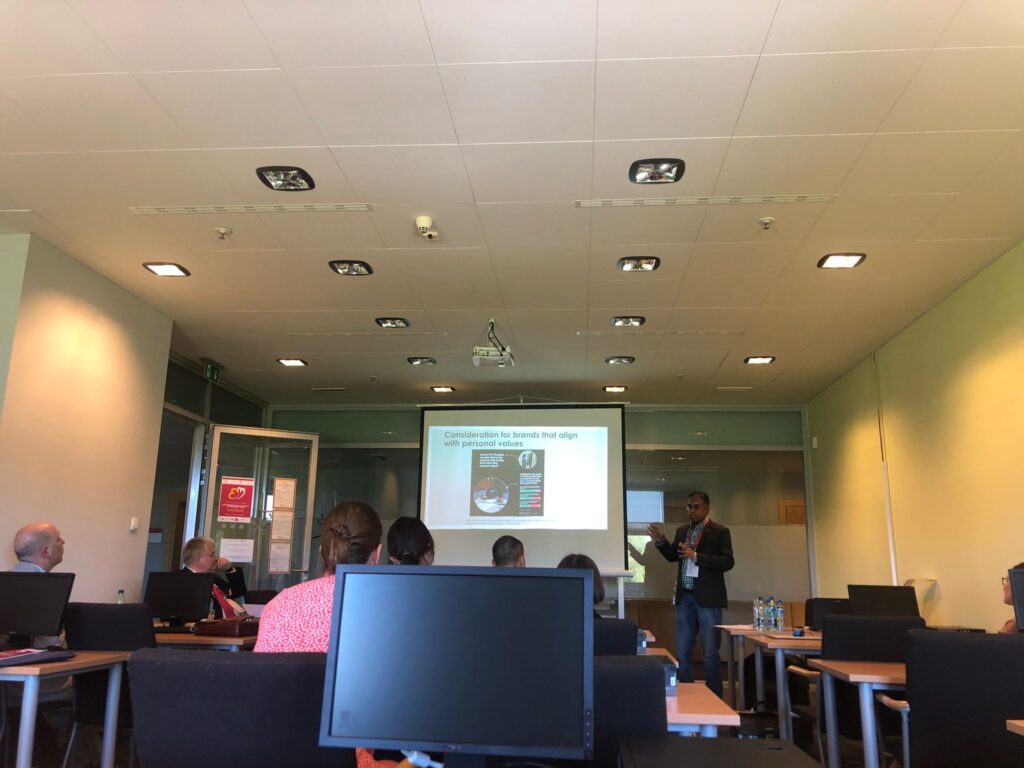
Recommendations
For ‘people like us’, investing in personal branding is important considering the trends in society, work and workplaces. The ability to selflessly give back, match action with words and stay consistent with values allow us as personal brands to be more authentic and grounded in a world.
When it comes to media, having clear governance and deterrence measures are ways to reduce abuse of media in the hands of personal brands. Abuse can be in the form of misleading information or not sharing content that fully explains the influencer collaborations with corporations who partner. In a recent case in Poland, the Office of Competition and Consumer Protection (UOKiK) fined people using pyramid schemes on social media and as well as a YouTuber for dubious approaches.
Ensuring transparency and openness with citizens on media content and financial backing can reduce lobbying and other influences and protect journalists who often can come under threat for their views.
To be truly viewed as objective, media needs to gain trust and acknowledgement again as a professional with ethics and values.
Encouraging youth to join media and journalism is important as they bring newer ideas and also have the ability to take a stand on topics that matter to society – more than other generations. When there is selflessness and disinterestedness, engagement with stakeholders gets stronger.
Bringing policies that monitor disinformation, hate content and racism and by using latest technologies to curb the spread of fake news can reduce the burden on citizens.
Lastly, improving media literacy and awareness on disinformation at the educational institutions and making it part of the curriculum can help improve how this function is perceived.
Overall, to balance the moral and ethical dilemmas of personal branding in a hyperpolarized world, it is important to Improve accessibility and social inclusion, create avenues for media pluralism and building strong governance and deterrence measures.
I had the opportunity to present my thoughts as an independent researcher at the XVI Scientific Conference of Media Ethics held on May 18 and 19, 2022 by the Institute of Journalism, Media and Social Communication of the Pontifical University of John Paul II in Krakow under the scientific patronage of the Polish Society for Social Communication.
